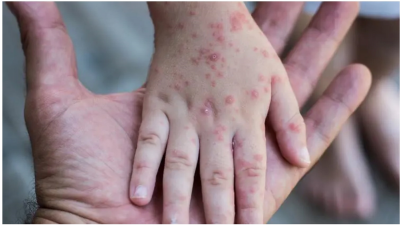Since the outbreak of the monkeypox virus, residents of some regions in Central and West Africa are in severe anxiety due to fear of contracting the virus and misinformation surrounding it, particularly as these areas are known for their high consumption of monkey meat and bushmeat hunted in the African jungles.
In the capital of the Central African Republic, Bangui, bushmeat markets have experienced a significant slump since the announcement of the monkeypox outbreak in the city, where unfounded rumors and fear of the disease have halted activity in these markets, despite reassuring messages from authorities to prevent disruption to daily life and the economy in markets where traders struggle to sell their products.
A large segment of families in the Central African Republic, as in other Central African countries, relies on bushmeat as a staple food due to its low price and availability in markets, in addition to its high nutritional value as a primary source of protein. However, the circulating rumors about the dangers of consuming bushmeat have led many to refrain from eating what Africans call "bush meat."
In an attempt to calm fears, the Ministry of Health in the Central African Republic stated, "It is important to follow health precautions when purchasing bushmeat, handle it carefully, and cook it properly." They added, "We have never said that we should not eat bushmeat, but it is essential to respect basic health measures to avoid any risk," reaffirming that they have developed a response plan to confront the outbreak and intensify awareness campaigns to ensure that people receive accurate information to prevent panic.
Experts believe that if authorities do not take swift measures, the panic related to monkeypox will have dire consequences on the local economy of the Central African Republic and on other African countries that rely on monkey meat and bushmeat as a staple food for middle- and low-income groups.
The prices of beef and sheep in the Central African Republic have risen due to insecurity in grazing areas and corridors, where armed groups attack herders' gatherings, loot, and periodically kill dozens of people, in addition to price speculation, drought, and the migration of villagers to cities.
Monkey meat enjoys great popularity in the Central African Republic, just like other low-priced bushmeats sold in popular markets. Monkeys are hunted with guns, and hunters rarely resort to traps to catch them as they are smart and hard to ensnare. After hunting, the hunters cut the meat and dry it over fire using primitive methods to maintain its quality throughout the hunting days.
If families desire fresh monkey meat, they only need to move to areas near hunting grounds, which are located between 180 to 350 kilometers from the capital, Bangui, where they can buy fresh meat before it is stored by the hunters. This way, they can also benefit from the price difference and even purchase special species whose hunting and sale is prohibited.
The lower parts of the monkeys are particularly favored by enthusiasts of this meat, in addition to the intestines and head, where families prepare special recipes to extract the brain and use it in soup or other dishes with types of sauces like peanut paste, vegetable oil, or vegetables to suit all tastes.




